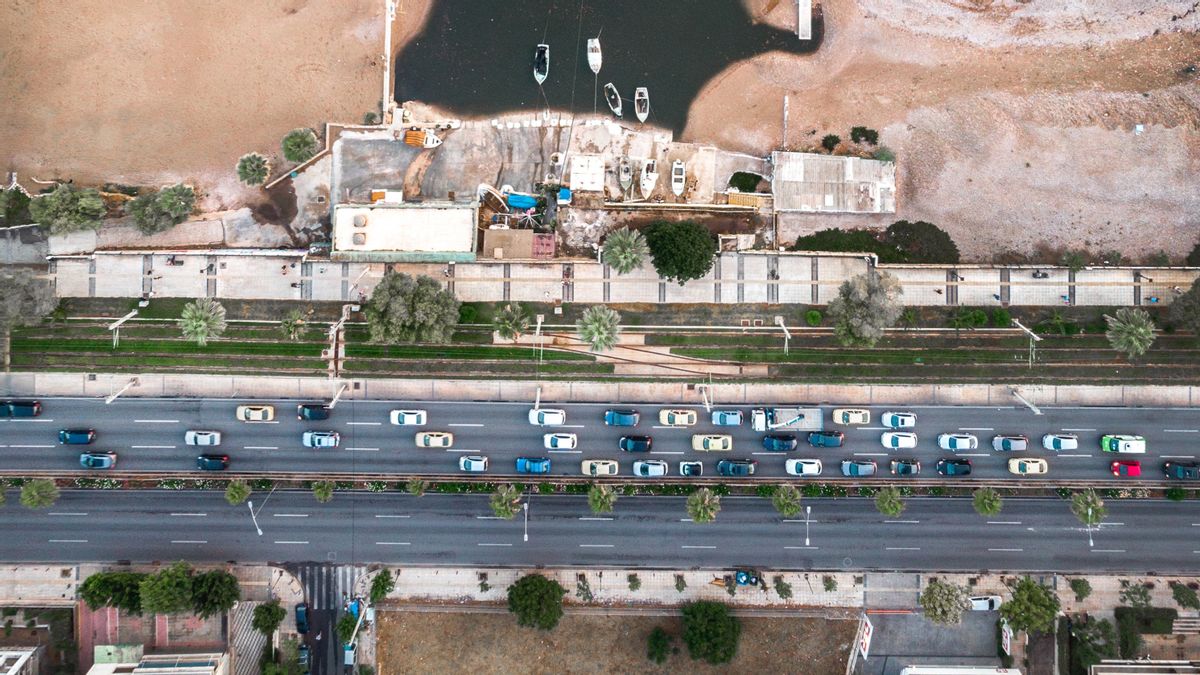JAKARTA - To campaign for the physical distancing movement, every day the Greeks are presented with scenes of two men sitting several meters apart behind a long table in a brightly lit room. The scene was broadcast on television channels at certain hours.
The Ministry of Health's daily Covid-19 briefing was also broadcast on television. Starting with Sotiris Tsiodras, a Harvard-trained infectious disease professor who delivers up-to-date facts and figures by occasionally pleading emotionally with citizens to always keep their distance while traveling.
Minister of Civil Defense Nikos Hardalias also always begged Greeks to stay at home in this situation. Their efforts to maintain security so that COVID-19 does not spread too much in the country appear to be bearing fruit. In the country with a population of more than eleven million there were 2,145 confirmed cases as of Monday 13 April. Of that number, 99 of them died. A much lower figure than any other country in Europe.
Greece is facing the COVID-19 outbreak better than expected. However, now they are also preparing for the possibility of increasing cases. Tsiodras sees Orthodox Easter, which is celebrated on April 19 as a challenge. At that moment, it is customary for people to flock back to their ancestral villages in the countryside to celebrate the biggest festival in their religious calendar. Of course this presents a big risk in spreading the virus.
Field conditions
Launching The Guardian, Wednesday, April 15, Greece's ability to cope with a public health emergency with the current situation is not uncommon. For nearly a decade, Greece has been embroiled in a debt crisis, in which its economy contracted by 26 percent. In addition, Greece's health system is far from recovering.
Government hospitals are bearing the brunt of cutting funds in exchange for rescue loans from international lenders to keep Greece afloat in the eurozone. With the epidemic in Europe, authorities admit, Greece only has 560 intensive care unit (ICU) beds.
Besides, Greece is like Italy. Both countries have large elderly populations, with about a quarter of the retirement age. "There are realities, weaknesses, which we are very aware of," said Dr. Andreas Mentis who heads the Hellenic Pasteur Institute.
“Before the first cases were diagnosed, we had started examining people and isolating them. Incoming flights, mainly from China, are monitored. Later, when other people started being sent home from Spain, for example, we made sure they were quarantined at the hotel, ”he added.
Dr Mentis sits on the scientific committee advising the center-right government about the deadly disease. From the outset, several officials in the Greek government said the lockdown feared disrupting social conditions and a devastating choice for a country that is just beginning to show signs of economic rejuvenation.
In late February, before Greece recorded its first death from COVID-19, the carnival parade was canceled. On March 10, schools in Greece were ordered to close. Within days, bars, cafes, restaurants, nightclubs, fitness centers, malls, cinemas, retail shops, museums and archaeological sites were also closed.
Traumatic events in Italy resulting from COVID-19 shocked Greeks, as well as citizens of other countries. This was also conveyed by Tsiodras and Minister of Defense Hardalias when they tried to convey the message of the danger posed by the disease.
After seeing the state of Italy, the Greek government was forced to carry out a wider closure. Beaches and ski resorts that are usually full of tourists are also hit by the closure. Public gatherings of more than ten people will also be disbanded.
In addition, flights to and from the worst affected countries were also suspended. However, the influential Greek Orthodox Church, its pastor refused to close down Holy Communion services and rituals.
However, the pandemic is also a catalyst for the Greek government elected to power in July 2019 on the reform agenda. If Greece is forced to go into lockdown, the government will take advantage of the crisis to enact long overdue digital reforms aimed at protecting citizens' health and modernizing Greek citizens.
"When a pandemic breaks out, the need to simplify government processes is paramount," said Greek Digital Governance Minister Kyriakos Pierrakakis.
“One of the first things we do to limit incentives for people to leave their homes is to allow them to receive doctor's prescriptions on their cell phones. That alone, has saved 250 thousand citizens from visits to doctors within 20 days. This has dramatically helped reduce the number of people leaving the house, "he added.
Documents that can normally only be received at government offices will later be presented online. It also saves you thousands of trips every day. "By changing the nature of citizens' interactions with the state, our hope is that eventually public trust in the institutions will recover," said Pierrakakis.
The English, Chinese, Japanese, Arabic, and French versions are automatically generated by the AI. So there may still be inaccuracies in translating, please always see Indonesian as our main language. (system supported by DigitalSiber.id)













